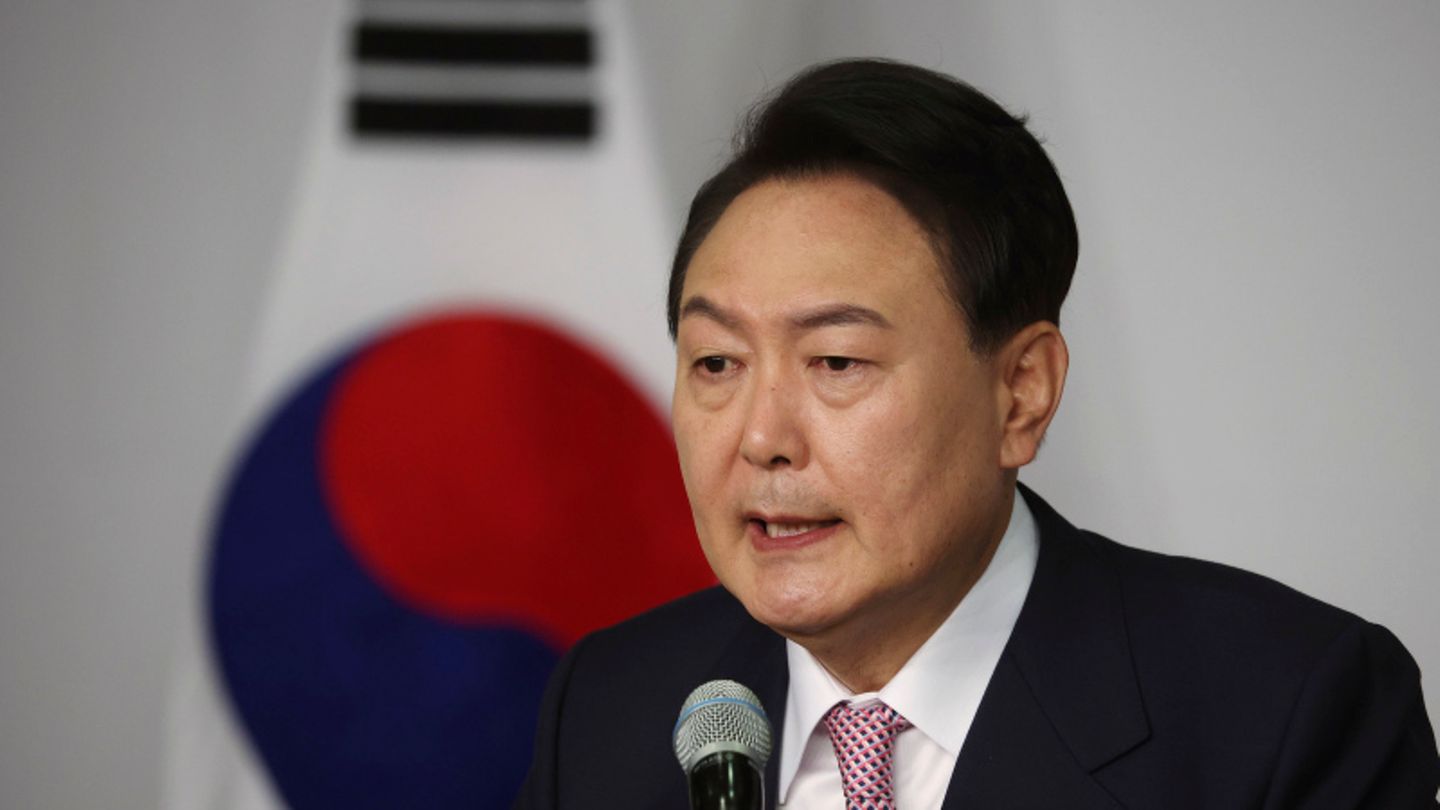It was the closest presidential election that South Korea has ever experienced, but in the end the conservative change was certain: the opposition candidate Yoon Suk Yeol won the race. The 61-year-old faces great challenges.
After five years of liberal dominance, a change of power is imminent in South Korea: the conservative opposition candidate Yoon Suk Yeol has won the presidential elections. In a close race, 61-year-old former Attorney General Yoon won Wednesday’s election by a razor-thin margin over his closest rival from the ruling Democratic Party, Lee Jae Myung. The gap was less than a percentage point – it was the closest presidential election the country has ever seen. Yoon described his triumph as a “victory of the people” at the National Assembly in Seoul. “National unity” will have top priority.
The left-liberal Lee admitted his defeat early Thursday morning (local time) and congratulated Yoon. He wants to take full responsibility for the outcome of the election. After counting almost all the votes cast, Yoon received 48.6 percent. Lee came to 47.8 percent. Other applicants were irrelevant. An official confirmation of the election result was still pending.
Presidency in South Korea of enormous importance
Yoon is considered a political newcomer. He only entered politics last year and was eventually voted the candidate of the main opposition party, the People’s Power Party (PPP). He will succeed President Moon Jae-in in May, who was unable to run again. The President is elected for a one-time five-year term.
The presidential election is of enormous importance for the fourth largest economy in Asia. In the country’s presidential system, almost all important decisions are passed through the head of state. The President can also rule against a majority of the opposition in Parliament. The Democratic Party still has the majority there.
According to experts, the close outcome of the election also reflects a deeply divided country. “One of the biggest problems in Korean society is the highly polarized political landscape,” says program manager Lim Sung Eun from the Friedrich Naumann Foundation in Seoul. This also applies to other areas such as gender equality. Social integration should be the first task of the election winner.
Foreign policy as a central topic
The election was also considered an assessment of the current government. Above all, scandals involving former government officials and the galloping real estate prices had caused dissatisfaction in large parts of the population. According to experts, the conservatives, who suffered a clear defeat in the election five years ago, benefited from this.
In addition to the course of economic policy over the next five years, the election also dealt with dealing with the communist leadership in North Korea, cooperation with the ally, the USA, and the difficult relationship with Japan. South Korea also finds itself in a difficult position in the trade war between the USA and China.
Yoon, who accused the government of failing to deal with North Korea, is expected to take a tougher stance in the dispute over the neighboring country’s nuclear weapons program. Yoon had also set himself the goal of fighting corruption and achieving a significant recovery in the economy from the consequences of the corona pandemic.
According to preliminary information from the National Electoral Commission, turnout was 77.1 percent and thus only slightly below the turnout in the 2017 presidential election. Almost 44.2 million eligible voters were called upon to cast their votes for the election.
Source: Stern
David William is a talented author who has made a name for himself in the world of writing. He is a professional author who writes on a wide range of topics, from general interest to opinion news. David is currently working as a writer at 24 hours worlds where he brings his unique perspective and in-depth research to his articles, making them both informative and engaging.




